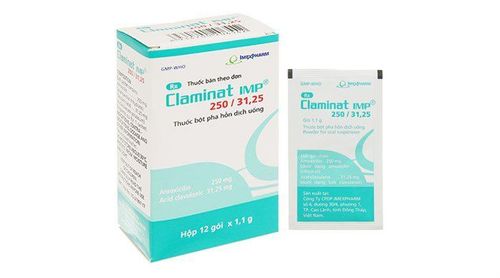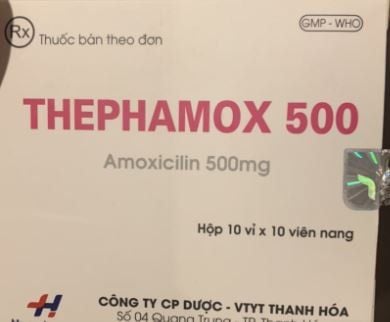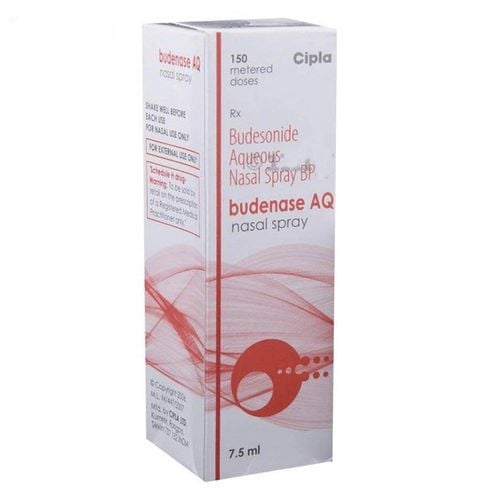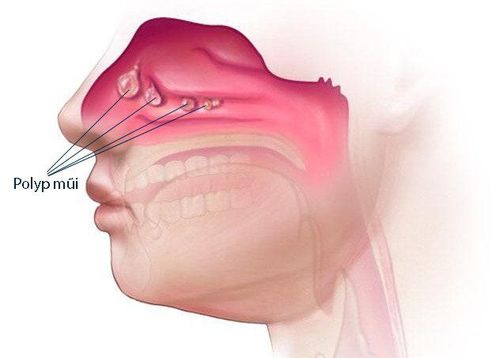This is an automatically translated article.
The article was professionally consulted by Specialist Doctor Ear, Nose Throat Doctor - Department of Medical Examination and Internal Medicine - Vinmec Ha Long International Hospital
When making the decision to have nasal polyp surgery, many patients have common concerns about the effectiveness of this treatment method. What are the possible risks of nasal polyp surgery?
1. What are nasal polyps?
Nasal polyps are not usually considered a disease but are an abnormal condition that occurs in the lining of the nose and the sinuses, in the 4 empty spaces above and behind the nose. Most nasal polyps are the result of an inflammatory response caused by bacteria or viruses, allergies, or an immune response against fungi. Chronic inflammation will increase vascular permeability in the nasal mucosa, causing accumulation of water inside the cells, gradually under the influence of gravity, these water retention tissues will be pulled down and formed. nasal polyps.
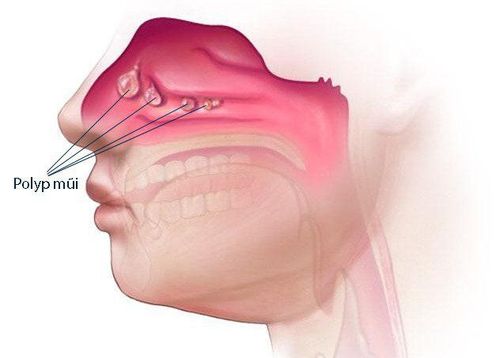
Nasal polyps often grow very slowly, leading to nasal congestion from one or both sides. At first, the patient pays little attention until the polyp grows, causing discomfort, especially when breathing through the mouth is mandatory.
Most nasal polyps have symptoms very similar to sinusitis or allergic rhinitis such as stuffy nose, runny nose, itchy nose... but sometimes with difficulty breathing and changes in smell. If left untreated, polyps, whether benign or harmless, will have a significant impact on the patient's daily life. Especially for young children, nasal polyps that are too large can cause airway compression, often worsen at night, making the patient unable to breathe and can't sleep, especially can be life-threatening.
2. Does nasal polyp surgery recur?
Nasal polypectomy is a procedure to reduce the volume of polyps, freeing the opening of the sinuses from the blockage. This may be the last option to help patients get rid of the pain caused by polyps. Most patients after surgery for nasal polyps feel more comfortable and comfortable because their symptoms have improved. However, polyps can still recur if the patient does not continue to monitor and take medication after surgery. Recurrence of polyps may be due to large polyps, incomplete removal of the polyp stalk or poor surgical technique.
On the other hand, to completely remove polyps, it is necessary to completely remove the cause of the disease, but surgery sometimes does not help to solve this cause. Therefore, the risk of polyps coming back within a year is very high, so patients still have to treat the disease regularly and strictly follow the doctor's instructions.
3. Complications that may occur when surgery for nasal polyps
Any surgical method has a certain risk and unwanted complications, nasal polyp surgery is similar. But whether risks and complications occur or not depends on many factors such as: equipment, medical facilities, medical staff... The doctor has high professional qualifications and long-term experience. then the success rate will be high and the complications will be very low and vice versa. Some complications may be encountered after surgery:
There is a scab in the nose but it will improve after a few weeks. Patients may have persistent nosebleeds for the first few weeks after surgery because the clotting mechanism has not been activated again.

Infection at the polyp removal site is usually due to the patient's lack of hygiene or some other factor. At that time, the patient should go to the hospital for early examination and treatment, to avoid complications.
4. Is nasal polyp surgery painful?
Nasal polyp surgery with pain no longer depends on the surgical method. Traditional polyp surgery often causes pain that lasts until the wound heals. Laparoscopic surgery is usually less or less painful than traditional surgery, and laparoscopic surgery helps the incision heal faster. In order to choose a safe, low-complicated, and pain-free surgical method, the patient needs to consult a doctor before making a decision.
Vinmec International General Hospital is a general hospital that has the function of examining and treating ENT diseases such as sinusitis, rhinitis, allergic rhinitis, chronic rhinitis, tonsillitis, and pain. throat, tinnitus and many other diseases. At Vinmec, we have also performed endoscopic diagnosis and treatment with modern medical methods for ear, nose and throat diseases, which not only brings high efficiency but also minimizes complications of recurrent disease. The great success is because Vinmec is always fully equipped with modern facilities, examination and treatment procedures are carried out by a team of experienced and qualified doctors that will bring about treatment results. optimal for customers.
Please dial HOTLINE for more information or register for an appointment HERE. Download MyVinmec app to make appointments faster and to manage your bookings easily.




